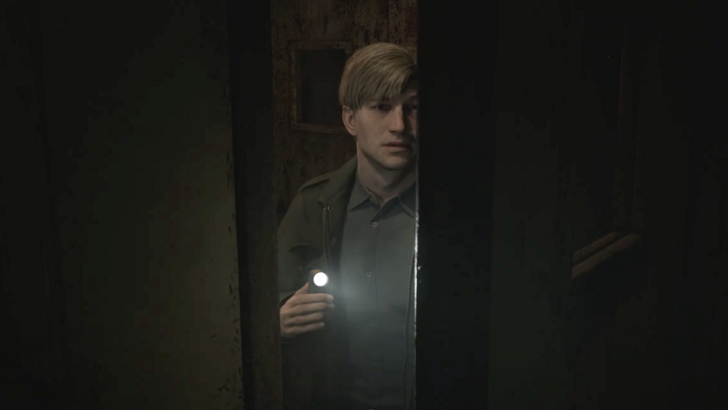Assassin's Creed: 10 Historical Changes
Ubisoft has once again fired up the Animus, this time transporting players to Japan's tumultuous Sengoku Period with Assassin's Creed Shadows. This installment introduces us to historical figures such as Fujibayashi Nagato, Akechi Mitsuhide, and Yasuke, the African samurai who served under Oda Nobunaga. As with previous entries in the series, these characters are intricately woven into a narrative that blends historical facts with fictional elements, exploring themes of revenge, betrayal, and murder. While the game might humorously suggest that Yasuke needed to gather XP to wield a gold-tier weapon, it's clear that Assassin's Creed thrives on its mix of history and creative storytelling.
It's crucial to remember that Assassin's Creed is firmly rooted in historical fiction. The series masterfully crafts open-world environments based on extensive research, yet it deliberately deviates from historical accuracies to enrich its narrative about a secret society aiming to dominate the world through ancient, pre-human technology. While the games are not intended as history lessons, they do take liberties with historical events and figures to suit their storytelling needs.
Here are ten notable instances where Assassin's Creed has creatively rewritten history:
The Assassins vs Templars War

The central conflict between the Assassins and Templars is a complete fabrication. Historically, there's no evidence of a war between the Order of Assassins, founded in 1090 AD, and the Knights Templar, established in 1118 AD. Both groups were active for roughly 200 years before their disbandment in 1312, and while they may have crossed paths during the Crusades, there's no indication of ideological opposition.
The Borgias and their Superpowered Pope

In Assassin's Creed 2 and Brotherhood, the Borgia family is portrayed as the antagonists, with Rodrigo Borgia, who becomes Pope Alexander VI, as the Templar Grand Master. While the Borgias were indeed controversial figures, the idea of them using a magical Apple of Eden to control humanity is pure fiction. The game's depiction of Cesare Borgia as a psychopathic leader also stretches beyond historical evidence, which largely consists of rumors.
Machiavelli, Enemy of the Borgias

Niccolò Machiavelli is portrayed as an ally to the protagonist Ezio in Assassin's Creed 2 and Brotherhood. However, the real Machiavelli's political philosophy was more aligned with strong authority, which contradicts the Assassin's Creed. Moreover, Machiavelli had a more nuanced relationship with the Borgias, serving as a diplomat in Cesare Borgia's court and viewing him as a model ruler.
The Incredible Leonardo da Vinci and his Flying Machine

While Assassin's Creed 2 captures Leonardo da Vinci's charisma well, it takes liberties with his travels and inventions. In the game, da Vinci moves from Florence to Venice in 1481, contrary to historical records. The game also brings to life many of da Vinci's designs, including a flying machine, despite no evidence that these were ever built or flew.
The Bloody Boston Tea Party

In Assassin's Creed 3, the Boston Tea Party is depicted as a violent event with protagonist Connor killing multiple British guards. In reality, the event was a non-violent protest. The game also suggests Samuel Adams masterminded the protest, a claim historians debate.
The Lone Mohawk

Connor, a Mohawk in Assassin's Creed 3, fights alongside the Patriots against the British, contrary to historical alliances. The Mohawk were allies of the British, and Connor's actions would have made him an outlier among his people.
The Templar Revolution

Assassin's Creed Unity attributes the French Revolution to a Templar conspiracy, including a manufactured food crisis. In reality, the revolution was the result of years of natural disasters and societal issues, not a plot by the Templars.
The Controversial Killing of King Louis 16

Assassin's Creed Unity suggests the execution of King Louis 16 was a close call swayed by a single vote from a Templar. In reality, the vote was a clear majority. The game also softens the portrayal of the French aristocracy, ignoring their role in the revolution's causes.
Jack the Assassin

Assassin's Creed Syndicate reimagines Jack the Ripper as a rogue Assassin trying to take over the London Brotherhood. Historically, Jack the Ripper was a serial killer whose identity remains unknown, and there's no evidence linking him to any secret societies.
The Assassination of the Tyrant Julius Caesar

Assassin's Creed Origins frames Julius Caesar's assassination as a battle against a proto-Templar. Historically, Caesar was a popular leader advocating for land reform, and his death led to the collapse of the Roman Republic, contrary to the game's portrayal as a victory for the people.
The Assassin's Creed series takes great care to create immersive historical settings, but as seen above, these settings often diverge from historical accuracy to serve the game's narrative. This is the essence of historical fiction, and it's what allows the series to explore compelling "what if?" scenarios. What are your favorite examples of Assassin's Creed bending the truth? Share your thoughts in the comments.
- 1 Roblox Game Codes Updated: April 2025 May 13,2025
- 2 The Best Gaming PC of 2025: Top Prebuilt Desktops Mar 26,2025
- 3 Roblox: Warrior Cats: Ultimate Edition Codes (January 2025) Feb 12,2025
- 4 Tips to Conquer the Dragon Quest III: HD-2D Remake Feb 21,2025
- 5 Pokémon Go Is Celebrating New Year’s 2025 with Festive Fireworks and More! Jan 03,2025
- 6 Culinary Journey Thrives for Six Jan 01,2025
- 7 Fortnite: Chapter 6 Season 1 NPC Locations Feb 13,2025
- 8 Pokémon GO Fest 2025: Fest Dates, Locations, Details Revealed Feb 13,2025
-
Unique Wallpaper Apps for Every Style
A total of 10
-
Top Beauty Trends for This Season
A total of 10
-
Ultimate Baseball Games for Android
A total of 10






























